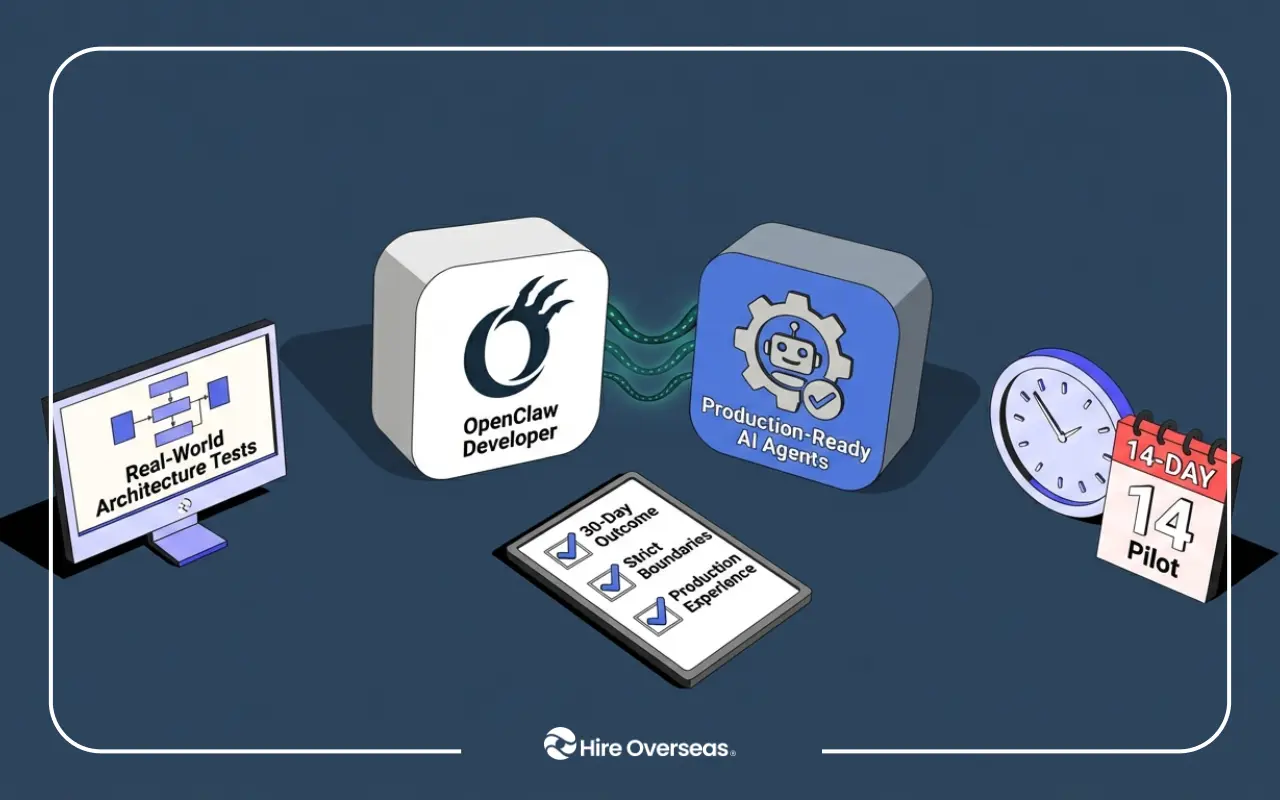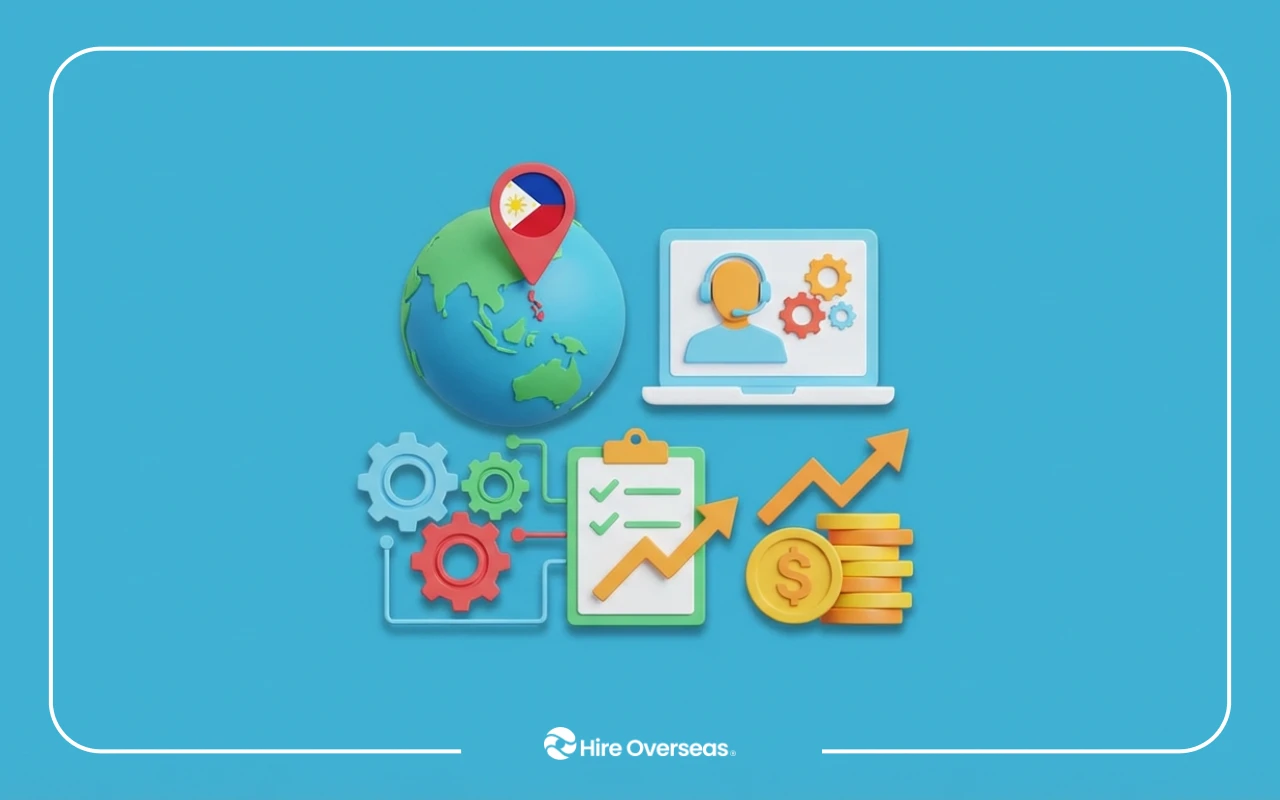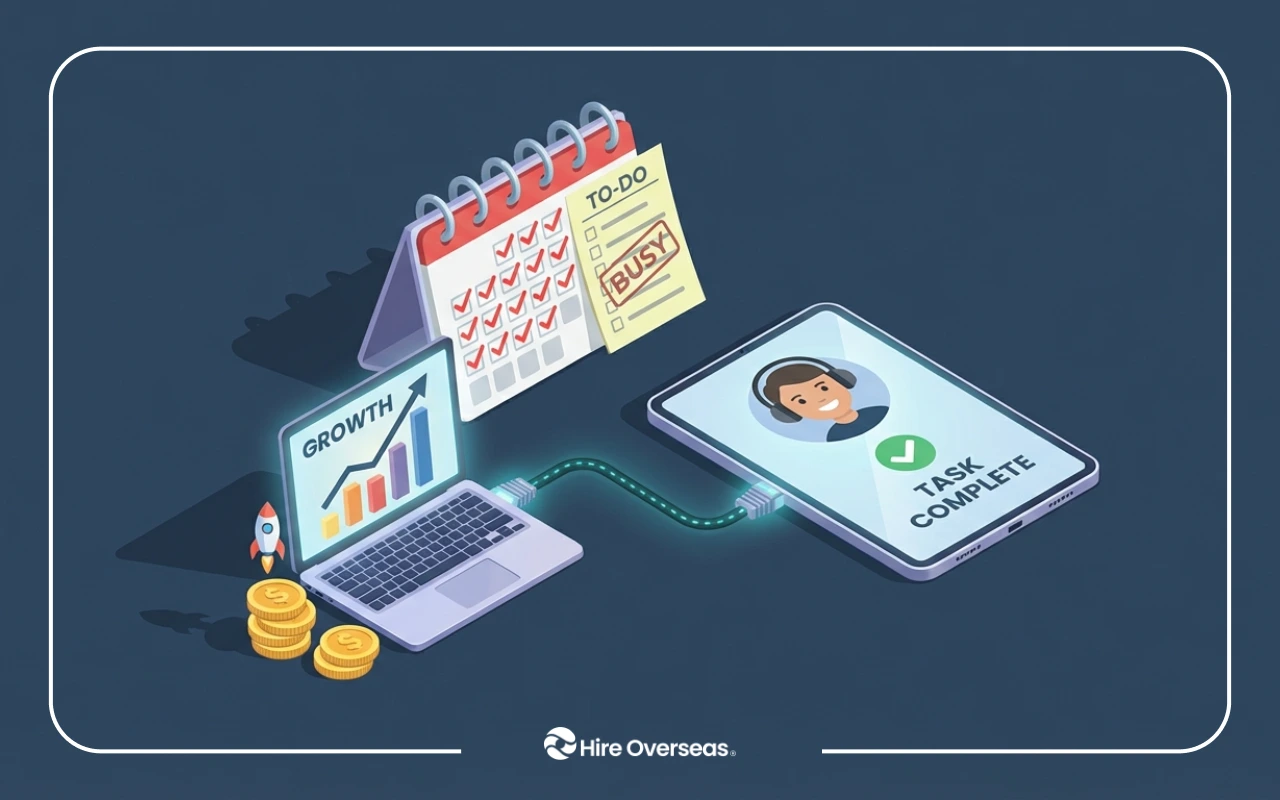How to Hire a Virtual Assistant in China: The Ultimate Guide for Foreign Executives and Expats

Living or doing business in China can be both exciting and overwhelming, especially for foreigners who don’t speak Mandarin or understand the local systems. From booking appointments and communicating with suppliers to managing paperwork and travel, even simple tasks can become frustratingly complex.
That’s why many foreign executives and entrepreneurs are learning how to hire a virtual assistant in China — not just to save time, but to gain cultural fluency, professional efficiency, and a smoother life abroad.
The Growing Role of Chinese Virtual Assistants
In recent years, Chinese virtual assistants (VAs) have become vital partners for foreign professionals in China. They’re not just administrative helpers — they serve as bilingual coordinators, cultural interpreters, and local problem-solvers who make both business and daily living smoother and more efficient.
Foreigners often rely on their VA to:
- Book restaurants, clinics, and local services through Chinese-only apps like Meituan, Dianping, or Alipay — handling everything from reservations to payment confirmations.
- Translate in real time during calls, meetings, or negotiations, ensuring tone and intent are accurately conveyed across cultures.
- Research and order products that aren’t easily accessible to non-Chinese speakers, including home goods, electronics, or custom-made items from Taobao or JD.com.
- Coordinate with suppliers and vendors, track shipments, and manage ongoing communication on WeChat, which is essential for doing business in China.
- Handle travel logistics, such as booking trains, flights, or hotels, and navigating local transport systems.
- Manage administrative paperwork, from visa appointments to rental agreements, often simplifying processes that can be confusing to foreigners.
- Assist with online payments and local registrations, where foreign bank cards or ID numbers might not work smoothly.
- Support business operations, such as data entry, email correspondence, or translating documents for bilingual communication.
These services go far beyond traditional virtual admin work, they bridge everyday gaps that foreigners encounter in China’s digital-first, Mandarin-only environment.
Why Hiring a Chinese Virtual Assistant Adds Real Strategic Value
While many foreigners first hire a VA for help with daily tasks, the real value emerges over time. A Chinese virtual assistant becomes more than a convenience — they become an operational asset that enhances productivity, decision-making, and global collaboration.
Here’s how their impact extends beyond basic support:
Remove Barriers to Doing Business in China
Language, systems, and cultural differences can quietly drain hours of productivity each week. A Chinese-English bilingual assistant eliminates that friction. They ensure your communication with local partners, suppliers, and customers is precise, professional, and culturally aligned — preventing the small misunderstandings that often lead to delays or lost opportunities.
Build Continuity Between Time Zones
For companies managing operations from the U.S. or Europe, time zones can be a daily bottleneck. With a remote Chinese assistant, work continues overnight — from tracking shipments to scheduling follow-ups — so progress never stalls. By the time you start your day, your assistant has already pushed projects forward, giving you a true 24-hour workflow.
Bring Market Awareness That Data Alone Can’t Provide
A skilled VA doesn’t just translate, they interpret. They understand how local consumers think, how suppliers negotiate, and what’s culturally appropriate in Chinese business settings. This perspective gives foreign decision-makers an edge that analytics or translation software can’t replicate.
Improve Efficiency Without Adding Headcount
Hiring a Chinese VA gives businesses access to on-demand, high-skill support at a fraction of local hiring costs. Many assistants are trained in digital tools, logistics systems, and cross-border workflows. Instead of overloading in-house staff, executives can delegate time-consuming but vital coordination work.
Interested in exploring more global hiring options? Read more: Best Countries to Hire Remote Workers
Strengthen Cross-Cultural Business Relationships
In China, how you communicate matters as much as what you communicate. A bilingual VA understands nuances of politeness, hierarchy, and timing. They help foreign leaders maintain professionalism and respect in ways that build long-term trust with Chinese partners — a critical factor in securing repeat business and reliable supply chains.
In short, a Chinese VA doesn’t just make life easier, they make your international operations stronger, faster, and more culturally intelligent. For companies serious about doing business in China, this kind of support isn’t a luxury; it’s a strategic advantage.
Thinking of expanding your global team beyond China? Read more: How to Hire Employees from Overseas
Hire Overseas Insider Guide: How to Hire a Virtual Assistant in China
Hiring a virtual assistant in China can seem daunting, especially if you don’t speak Mandarin or aren’t familiar with local hiring platforms. But with the right approach, English-speaking professionals can still find reliable support to manage both personal and business needs efficiently.
Here’s the Hire Overseas insider guide. A practical, step-by-step framework for foreign executives, entrepreneurs, and expats who need trusted help while operating in or with China.
Step 1: Identify Your Core Needs
Start by defining what you actually need help with.
Are you looking for someone to manage appointments, translation, and travel, or do you need business support like supplier follow-ups and document organization?
If you’re an English speaker in China, begin with an English-speaking general VA who can handle global coordination tasks first — emails, scheduling, reporting — then gradually add local Chinese freelancers or translators for on-ground help when needed.
Step 2: Use Global Hiring Platforms (in English)
You don’t need to browse Chinese job sites to find qualified help. Many Chinese or bilingual professionals advertise their services on international platforms where the hiring process is entirely in English.
Here’s where to start:
- Upwork and Fiverr: Search for “Chinese virtual assistant” or “bilingual assistant China.” Filter by English fluency and client ratings.
- LinkedIn: Use keywords like “Chinese VA,” “remote assistant in China,” or “Mandarin-English assistant.” Message candidates directly or post a short job description.
- Hire Overseas: For business owners and expats who value reliability, Hire Overseas is a smarter alternative to open marketplaces. The agency vets the top 1% of Chinese virtual assistants, tested for English fluency, cultural awareness, and international experience. The agency matches you with the right VA for your needs—personal support, supplier coordination, or business operations—saving you time and ensuring a seamless, professional fit from day one.
Tip: When posting online, clearly state that you’re an English-speaking foreigner seeking bilingual support. This helps filter out candidates who aren’t comfortable working in English.
Step 3: Verify Language Fluency and Reliability
When interviewing potential VAs, focus heavily on communication ability — not just basic English skills, but clarity, tone, and responsiveness.
Ask questions like:
- “How have you worked with foreign clients before?”
- “Can you summarize this task back to me in your own words?”
- “How would you handle communication if someone doesn’t speak Chinese?”
The goal is to ensure they can handle cross-cultural communication confidently without constant supervision.
Step 4: Set Up Clear Systems and Tools
Once you’ve hired your VA, create structure right away.
Use English-friendly software like Trello, Slack, or ClickUp for task tracking. Establish clear communication expectations — daily updates, weekly summaries, and time zone overlap hours.
Remember: structure replaces language fluency. The clearer your workflow, the easier it is for both sides to collaborate smoothly.
5: Start Small and Build Trust
Assign simple, low-risk tasks first such as scheduling, online research, or managing your inbox. Once your assistant proves reliability, expand their responsibilities to include supplier coordination, WeChat message management, or travel logistics.
Over time, your VA will understand your preferences and communication style, which makes collaboration almost effortless.
[blog-cta_component]
Expert Tips for Working Successfully with a Chinese VA
Respect local communication style
Chinese professionals often value politeness and clarity. Directness is appreciated but should always be balanced with courtesy and respect, especially in written messages or requests.
Use WeChat strategically
It’s the heart of business communication in China. Have your VA manage your WeChat presence, message translations, and group coordination professionally so your responses remain timely and appropriate.
Leverage their local perspective
Ask your VA for feedback on cultural nuances, tone, or timing before sending proposals or requests. Their understanding of Chinese business etiquette can prevent misunderstandings and help build stronger relationships with local partners.
Embrace time zone balance
Use the time difference to your advantage. Let your assistant handle supplier coordination, follow-ups, or administrative tasks overnight, so you wake up to a clear inbox and updated reports.
Ensure your VA can access foreign platforms
Your assistant should know how to use a VPN or secure connection to reach global tools and websites that may be restricted in China. This ensures uninterrupted communication, access to shared files, and smooth collaboration across international systems.
Invest in trust
Treat your VA as a long-term partner, not just remote help. The more they understand your workflow, decision-making, and communication preferences, the more proactive and valuable they become over time.
Additional Tip: Use Translation Tools to Navigate Local Platforms and Communication
Even with a fluent English-speaking virtual assistant, you’ll occasionally run into Chinese-only apps, invoices, or vendor messages. That’s where translation tools become powerful allies.
Your VA can collect key details from these sources, while tools like Google Translate, DeepL, or ChatGPT Translate let you confirm and understand information quickly.
For instance, if a supplier sends a WeChat message or a rental agency provides a document in Mandarin, your assistant can summarize it and you can double-check it with translation tools for clarity and confidence.
Common Mistakes to Avoid When Hiring a Chinese Virtual Assistant

Hiring a virtual assistant in China can dramatically improve productivity but only if you build the relationship the right way. Many foreigners focus on price or English level and overlook the practical and cultural factors that truly define success.
Here are the most important mistakes to avoid and how to fix them before they cost you time or trust.
Treating Your VA Like a Task Runner Instead of a Partner
Some foreign managers delegate random tasks without context or clarity, assuming the assistant will “figure it out.” This approach limits initiative and motivation.
Instead, share the purpose behind each task and how it connects to your business goals. Chinese professionals value structure and mutual respect.
Ignoring Cultural Nuances
Direct or blunt feedback can be misinterpreted in Chinese culture, even when it’s well-intentioned. Learn to give constructive feedback that’s clear but tactful, and recognize that Chinese professionals often communicate with subtlety.
The best partnerships combine Western directness with Chinese courtesy, creating a smooth and respectful workflow.
Neglecting Data Security
China’s digital ecosystem relies on tools like WeChat, Alipay, and Baidu Drive which may differ from Western norms. Sharing confidential documents or login details without proper security is a serious risk.
Always use company-managed tools like Google Workspace, password managers, and cloud storage with restricted access. Reputable partners like Hire Overseas enforce NDAs and international data protection standards for every VA they deploy.
Overloading Tasks Too Soon
Many foreign executives try to offload everything at once — emails, supplier communication, social media, travel booking, even accounting. This often leads to confusion and burnout.
Start with structured, measurable tasks that let your VA build confidence and context. Once they understand your workflow, expand their role into higher-value support.
Failing to Clarify Decision Boundaries
Some business owners expect initiative but never define authority levels. Can your VA reply to clients directly? Approve orders? Communicate with vendors on your behalf?
Clarify these boundaries early. A good assistant wants to help but also respects hierarchy. Knowing when to act and when to confirm avoids costly missteps.
Overlooking Cultural Holidays and Work Schedules
China observes national holidays like Golden Week and Lunar New Year that may not align with Western calendars. If you rely on your VA during these times, plan ahead.
Respecting their local holidays strengthens rapport and ensures smoother planning especially for roles requiring constant coordination.
Expecting Instant Western Work Habits
Chinese professionals are highly efficient but often accustomed to detailed instructions and formal communication. Don’t assume your VA will immediately adapt to Western work norms such as improvisation or informal updates.
Provide training and feedback early. Within a few weeks, most bilingual assistants easily align with international workflows when expectations are clear.
Ignoring the Value of Relationship Building (Guanxi)
In Chinese culture, trust is built through consistent communication and reliability — not just contracts. A quick check-in or personal thank-you goes a long way in strengthening loyalty.
Treating your VA as a partner, not just a contractor, results in better initiative, problem-solving, and long-term retention.
Avoiding these mistakes helps you build a strong, culturally aligned, and reliable partnership with your Chinese VA. One where communication flows naturally, tasks are handled confidently, and both sides understand each other’s expectations.
Signs You Might Need a Chinese Virtual Assistant
Many foreigners living or doing business in China don’t realize how much time they lose each week to small communication gaps, logistical delays, or administrative confusion. If any of these sound familiar, it’s probably time to hire a Chinese virtual assistant — whether for personal support, business coordination, or both.
For Expats and Foreign Residents
You might need a VA if:
- You struggle to book restaurants, doctors, or services because apps and phone lines are all in Mandarin.
- You waste time translating messages or forms using online tools that miss context.
- You feel anxious making phone calls or appointments with local vendors or landlords.
- You’ve missed deliveries, service visits, or deadlines because you couldn’t read the notifications.
- You need someone to handle WeChat communication, translate chats, or follow up with service providers.
- You spend hours researching local products, home services, or travel options without clear results.
A remote Chinese assistant for foreigners bridges these gaps instantly, freeing you to focus on work or enjoy life abroad without the stress of constant translation or miscommunication.
For Business Owners and Executives Working with China
You might need a VA if:
- You frequently communicate with Chinese suppliers or partners, but language delays slow everything down.
- You manage imports, logistics, or sourcing, and need real-time coordination during China’s business hours.
- Your U.S. or overseas team struggles with time zone differences, missing critical follow-ups overnight.
- You want to expand into the Chinese market but lack local insight or bilingual research support.
- You rely on freelancers for translation, research, or admin, but the workflow feels fragmented.
- You need bilingual reporting, presentation prep, or communication help for meetings and vendor calls.
A Chinese-English bilingual assistant ensures smooth cross-border communication, efficient scheduling, and local follow-through. Exactly what international businesses need to operate confidently in China.
Why These Signs Matter: Most foreigners wait until frustration peaks before hiring help. But a VA doesn’t just solve short-term problems, they build long-term efficiency.
A small investment in the right support can completely change how you live and work in China.
Simplify Life and Business in China
Working or living in China doesn’t have to be difficult. The right Chinese virtual assistant helps you overcome language barriers, manage local logistics, and stay productive wherever you are.
For foreign executives, a bilingual VA keeps operations running smoothly across time zones and ensures clear, professional communication with local partners.
For expats, they handle everything from bookings to translations, freeing you to focus on work or enjoy life abroad.
FAQs About Hiring a Virtual Assistant in China
How much does it cost to hire a virtual assistant in China?
Chinese virtual assistants typically charge between $7–$25 USD per hour, depending on experience, English proficiency, and specialization. Administrative or lifestyle support tends to be on the lower end, while bilingual business coordination and supplier management command higher rates. Hiring through a vetted agency like Hire Overseas often provides fixed, transparent pricing with no hidden costs.
Do I need to speak Mandarin to work effectively with a Chinese virtual assistant?
No. Most bilingual VAs who serve foreign professionals are fluent in English and accustomed to working with international clients. However, having basic awareness of local customs or phrases can help communication feel smoother and more respectful.
Can a Chinese virtual assistant handle payments or financial transactions for me?
Yes, but with caution. Many VAs can facilitate local payments through Alipay, WeChat Pay, or UnionPay when foreigners face technical restrictions. However, you should never share personal banking information. Reputable services like Hire Overseas enforce strict confidentiality and can set up secure payment systems or NDAs to protect your data.
How can I ensure data privacy when working with a virtual assistant in China?
Use secure platforms like Google Drive, Notion, or password managers and restrict access by task. Avoid sharing sensitive logins over WeChat or email. Hire only assistants who follow international data protection standards and are comfortable signing non-disclosure agreements (NDAs).
Is it legal for foreigners to hire Chinese virtual assistants remotely?
Yes. Foreigners can legally contract Chinese professionals for virtual work, provided all payments are processed through legitimate platforms or agencies that comply with Chinese labor and tax regulations. Using global intermediaries such as Hire Overseas ensures compliance and secure cross-border payment handling.
Can a Chinese virtual assistant work with me if I live outside China?
Definitely. Many Chinese VAs work with clients in the U.S., Europe, Australia, and Singapore. Time zone differences can even work to your advantage — your assistant can complete tasks overnight, keeping your business running 24/7.
Unlock Global Talent with Ease
Hire Overseas streamlines your hiring process from start to finish, connecting you with top global talent.
Unlock Global Talent with Ease
Hire Overseas streamlines your hiring process from start to finish, connecting you with top global talent.





